-
 Bitcoin
Bitcoin $83,003.8346
-0.90% -
 Ethereum
Ethereum $1,787.6973
-1.64% -
 Tether USDt
Tether USDt $0.9995
0.01% -
 XRP
XRP $2.1263
0.23% -
 BNB
BNB $591.2351
-0.90% -
 Solana
Solana $119.1255
-3.05% -
 USDC
USDC $0.9999
0.01% -
 Dogecoin
Dogecoin $0.1680
-1.02% -
 Cardano
Cardano $0.6486
-1.38% -
 TRON
TRON $0.2377
-0.81% -
 UNUS SED LEO
UNUS SED LEO $9.0563
-5.00% -
 Chainlink
Chainlink $12.6573
-2.11% -
 Toncoin
Toncoin $3.2615
-3.30% -
 Stellar
Stellar $0.2502
-3.15% -
 Avalanche
Avalanche $17.8425
-1.32% -
 Shiba Inu
Shiba Inu $0.0...01229
0.67% -
 Sui
Sui $2.2042
-3.02% -
 Hedera
Hedera $0.1612
-2.25% -
 Litecoin
Litecoin $82.0175
-2.55% -
 Polkadot
Polkadot $3.9412
-2.25% -
 MANTRA
MANTRA $6.2543
-0.12% -
 Bitcoin Cash
Bitcoin Cash $300.2157
0.46% -
 Dai
Dai $1.0001
0.02% -
 Bitget Token
Bitget Token $4.4395
-1.99% -
 Ethena USDe
Ethena USDe $0.9991
0.02% -
 Hyperliquid
Hyperliquid $11.8287
-1.42% -
 Monero
Monero $212.7655
-0.81% -
 Pi
Pi $0.5759
9.84% -
 Uniswap
Uniswap $5.8019
-1.57% -
 OKB
OKB $51.5723
5.60%
How does NFT change the ownership of game assets in the Metaverse?
NFTs revolutionize Metaverse game asset ownership by providing verifiable blockchain-based proof, enabling true ownership, external trading, and potential for new economic models, though scalability and regulation remain challenges.
Mar 05, 2025 at 04:54 pm
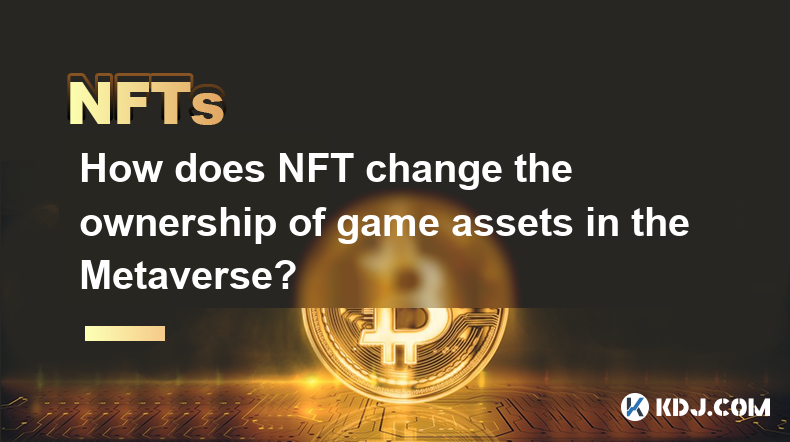
Key Points:
- NFTs provide verifiable proof of ownership for in-game assets, solving issues of centralized control and asset theft.
- NFTs allow for true ownership and tradability of in-game items outside the game's ecosystem.
- The interoperability of NFTs across different Metaverse platforms is still developing but holds significant potential.
- The use of NFTs can create new economic models within Metaverse games, empowering players and developers.
- Challenges remain regarding scalability, regulation, and the potential for market manipulation.
How does NFT change the ownership of game assets in the Metaverse?
The Metaverse, a persistent, shared 3D virtual world, is rapidly evolving, and Non-Fungible Tokens (NFTs) are playing a crucial role in reshaping the ownership of in-game assets. Traditionally, in-game items were controlled by the game developers, limiting players' ability to truly own or trade their virtual possessions. NFTs, however, offer a solution by providing verifiable proof of ownership on a blockchain, a decentralized and transparent ledger. This fundamentally alters the player-developer dynamic and opens up new possibilities.
One of the key changes NFTs bring is the ability to prove ownership of in-game assets. This is achieved by linking a unique NFT to each item, recording its ownership on the blockchain. This prevents duplication and unauthorized transfers, solving issues of asset theft and centralized control that plagued traditional game economies. Players now have irrefutable proof of ownership, enhancing their confidence and trust in the system.
Another significant shift is the ability to trade these NFT-based assets outside the game's confines. In traditional games, trading was often restricted to in-game marketplaces, subject to the game developer's rules and fees. NFTs allow players to trade their assets on external marketplaces, increasing liquidity and potentially leading to higher value appreciation. This opens up new economic opportunities for players, enabling them to profit from their in-game achievements.
The concept of interoperability is crucial in the Metaverse. Ideally, players should be able to seamlessly transfer their NFT assets between different Metaverse platforms. This interoperability is still under development, but its realization would significantly increase the utility and value of NFT-based game assets. Imagine taking your prized NFT sword from one game to another, enhancing your character in a new virtual world.
The introduction of NFTs also alters the economic models within Metaverse games. Developers can implement new revenue streams based on NFT sales, royalties, and in-game transactions. Players, in turn, can participate more actively in the game's economy, creating, trading, and profiting from their in-game contributions. This empowers both players and developers, fostering a more equitable and dynamic ecosystem.
Despite the numerous advantages, challenges remain. The scalability of blockchain technology is crucial to handle the large volume of transactions expected in a thriving Metaverse. Regulatory uncertainty around NFTs and their legal status also presents a hurdle. Furthermore, the potential for market manipulation and scams within NFT marketplaces requires careful consideration and robust security measures.
Frequently Asked Questions:
Q: Are all in-game assets in the Metaverse NFTs?
A: No, not all in-game assets in the Metaverse are NFTs. Many games still use traditional systems where items are owned by the game developer and cannot be traded outside the game. The adoption of NFTs is ongoing.
Q: Can I lose my NFT in-game assets?
A: While the NFT itself is stored on the blockchain and cannot be deleted, you could lose access to it if you lose your private keys or if the platform hosting the game shuts down. It's crucial to secure your private keys and diversify your storage solutions.
Q: How are NFT in-game assets valued?
A: The value of NFT in-game assets is determined by supply and demand, similar to traditional assets. Rarity, utility, community demand, and the game's popularity all contribute to the value. The market is still relatively volatile.
Q: What are the risks associated with NFT in-game assets?
A: Risks include the volatility of the cryptocurrency market, the potential for scams and fraud, and the risk of losing access to your assets due to security breaches or platform closures. Due diligence and careful selection of marketplaces are crucial.
Q: How do I buy and sell NFT in-game assets?
A: You typically need a cryptocurrency wallet and an account on an NFT marketplace compatible with the game. The process involves connecting your wallet, browsing available assets, purchasing them using cryptocurrency, and then transferring them to your wallet.
Q: Are NFT in-game assets taxable?
A: The tax implications of buying, selling, or trading NFT in-game assets vary depending on your jurisdiction. It's advisable to consult a tax professional to understand the relevant regulations in your area. They are often treated as property.
Q: What are the environmental concerns surrounding NFTs?
A: Some blockchains used for NFTs, particularly those using proof-of-work consensus mechanisms, have high energy consumption. However, many newer blockchains utilize more energy-efficient methods, and the environmental impact is an area of ongoing discussion and improvement within the industry.
Q: Can I create my own NFT in-game assets?
A: Some games allow users to create and mint their own NFT assets. However, this usually requires technical knowledge and adherence to the game's rules and guidelines. Others may offer limited opportunities for creating unique items.
Disclaimer:info@kdj.com
The information provided is not trading advice. kdj.com does not assume any responsibility for any investments made based on the information provided in this article. Cryptocurrencies are highly volatile and it is highly recommended that you invest with caution after thorough research!
If you believe that the content used on this website infringes your copyright, please contact us immediately (info@kdj.com) and we will delete it promptly.
- NFL overtime rules will now be uniform across the regular season and playoffs
- 2025-04-06 04:40:12
- Despite Failing to Start the Monthly Trade on a Bearish Note, the Crypto Markets Are Trying to Cope
- 2025-04-06 04:40:12
- Valuta: EOS's Strategic Rebirth
- 2025-04-06 04:35:12
- Binance Charity to Airdrop up to $1.5M in BNB to Myanmar and Thailand Earthquake Victims
- 2025-04-06 04:35:12
- Kerala: Digital Payment Systems Introduced in Government Hospitals
- 2025-04-06 04:30:12
- Pi Network price today
- 2025-04-06 04:30:12
Related knowledge
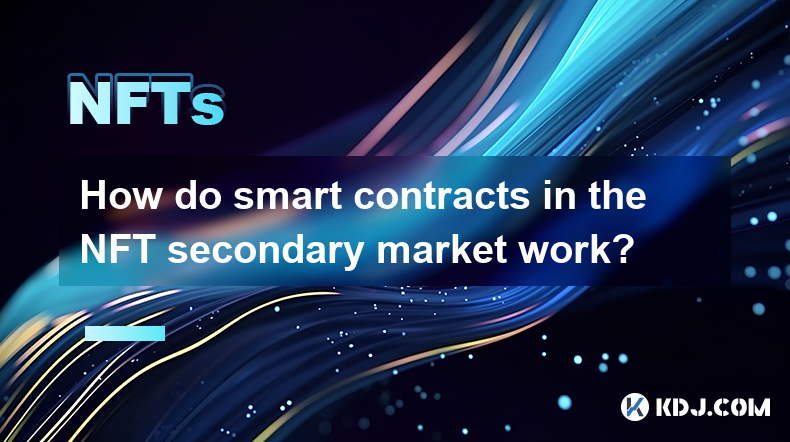
How do smart contracts in the NFT secondary market work?
Apr 03,2025 at 07:14am
Smart contracts play a pivotal role in the NFT secondary market, facilitating seamless transactions and enforcing predefined rules. These self-executing contracts with the terms of the agreement directly written into code are stored on the blockchain. In the context of NFTs, smart contracts automate the buying, selling, and transferring of digital asset...
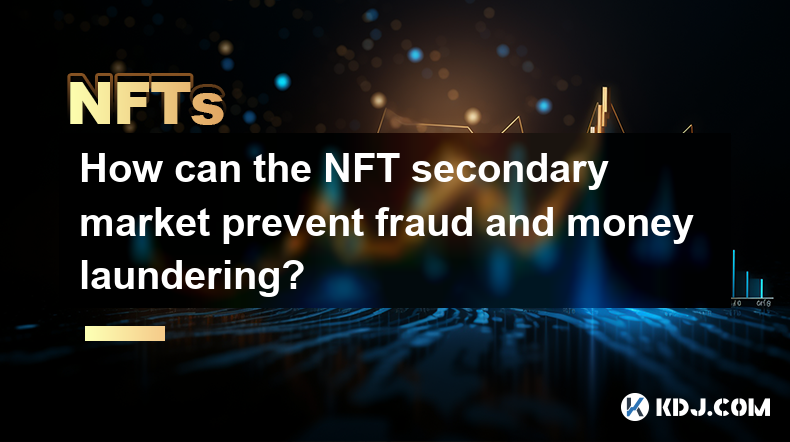
How can the NFT secondary market prevent fraud and money laundering?
Apr 03,2025 at 08:35am
The NFT secondary market has become a thriving hub for digital art and collectibles, but it also faces challenges in preventing fraud and money laundering. To tackle these issues, the market can implement various strategies and technologies to ensure a safer and more transparent trading environment. This article will explore how the NFT secondary market...
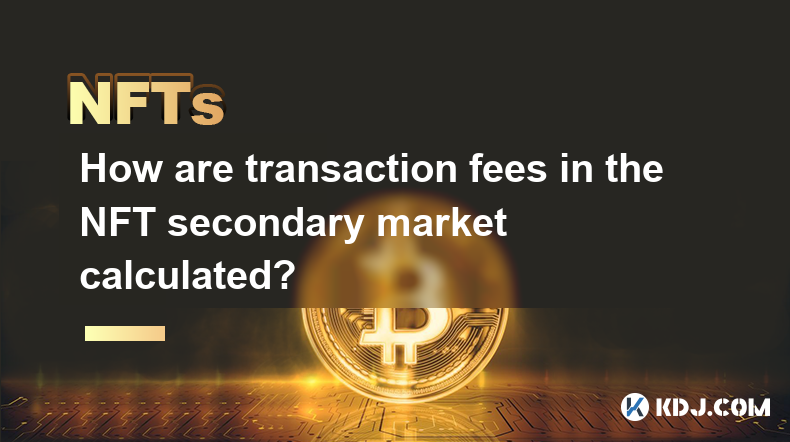
How are transaction fees in the NFT secondary market calculated?
Apr 04,2025 at 05:28am
The calculation of transaction fees in the NFT secondary market is a crucial aspect that both buyers and sellers need to understand. These fees can significantly impact the overall cost of transactions and the profits that sellers can make. In this article, we will delve into the various components that make up these fees, how they are calculated, and w...
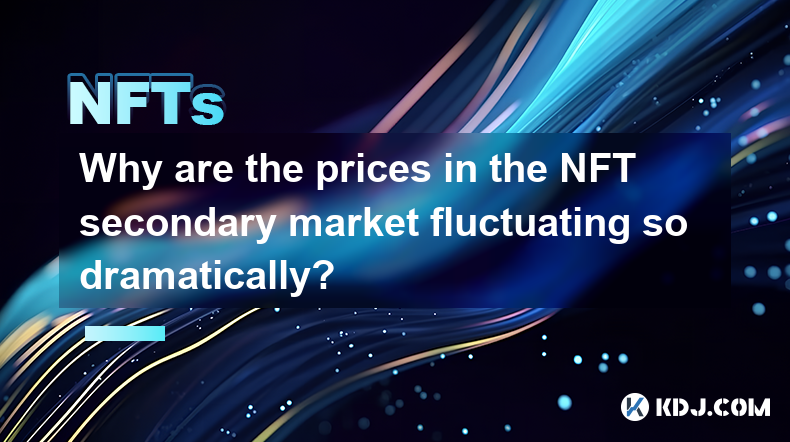
Why are the prices in the NFT secondary market fluctuating so dramatically?
Apr 03,2025 at 10:35pm
The NFT secondary market has been experiencing dramatic price fluctuations, leaving many in the cryptocurrency community puzzled and curious. To understand this phenomenon, it's essential to delve into the factors driving these price movements. From the impact of market sentiment and celebrity endorsements to the role of speculation and the unique natur...
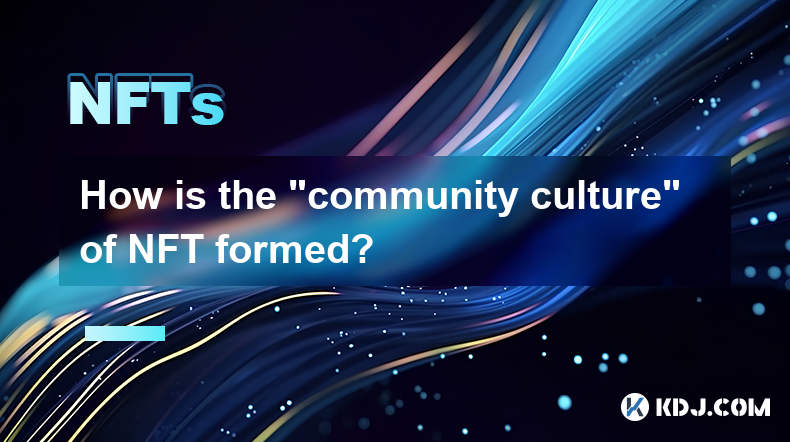
How is the “community culture” of NFT formed?
Apr 03,2025 at 11:07am
The formation of the 'community culture' within the NFT (Non-Fungible Token) space is a fascinating and multi-faceted process. It involves various elements such as shared interests, active engagement, and the creation of a sense of belonging among members. NFT communities often revolve around specific projects or artists, fostering a unique environment ...
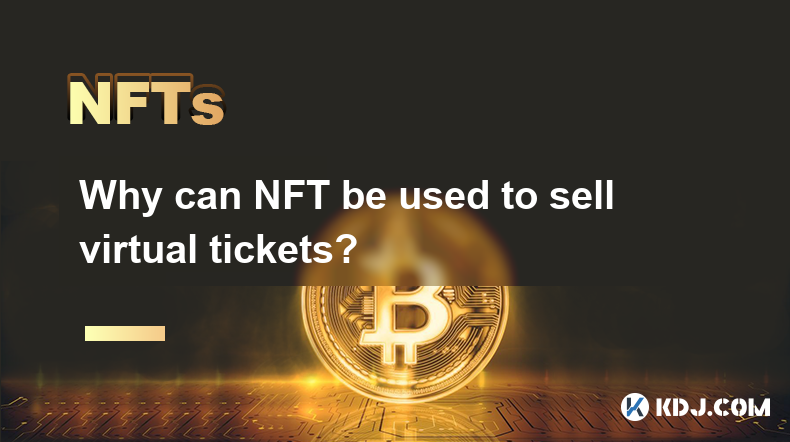
Why can NFT be used to sell virtual tickets?
Apr 03,2025 at 01:35pm
NFTs, or Non-Fungible Tokens, have revolutionized the way we think about digital ownership and value, particularly in the realm of virtual tickets. The primary reason NFTs can be used to sell virtual tickets is their unique nature. Unlike cryptocurrencies such as Bitcoin or Ethereum, which are fungible and can be exchanged on a one-to-one basis, NFTs ar...

How do smart contracts in the NFT secondary market work?
Apr 03,2025 at 07:14am
Smart contracts play a pivotal role in the NFT secondary market, facilitating seamless transactions and enforcing predefined rules. These self-executing contracts with the terms of the agreement directly written into code are stored on the blockchain. In the context of NFTs, smart contracts automate the buying, selling, and transferring of digital asset...

How can the NFT secondary market prevent fraud and money laundering?
Apr 03,2025 at 08:35am
The NFT secondary market has become a thriving hub for digital art and collectibles, but it also faces challenges in preventing fraud and money laundering. To tackle these issues, the market can implement various strategies and technologies to ensure a safer and more transparent trading environment. This article will explore how the NFT secondary market...

How are transaction fees in the NFT secondary market calculated?
Apr 04,2025 at 05:28am
The calculation of transaction fees in the NFT secondary market is a crucial aspect that both buyers and sellers need to understand. These fees can significantly impact the overall cost of transactions and the profits that sellers can make. In this article, we will delve into the various components that make up these fees, how they are calculated, and w...

Why are the prices in the NFT secondary market fluctuating so dramatically?
Apr 03,2025 at 10:35pm
The NFT secondary market has been experiencing dramatic price fluctuations, leaving many in the cryptocurrency community puzzled and curious. To understand this phenomenon, it's essential to delve into the factors driving these price movements. From the impact of market sentiment and celebrity endorsements to the role of speculation and the unique natur...

How is the “community culture” of NFT formed?
Apr 03,2025 at 11:07am
The formation of the 'community culture' within the NFT (Non-Fungible Token) space is a fascinating and multi-faceted process. It involves various elements such as shared interests, active engagement, and the creation of a sense of belonging among members. NFT communities often revolve around specific projects or artists, fostering a unique environment ...

Why can NFT be used to sell virtual tickets?
Apr 03,2025 at 01:35pm
NFTs, or Non-Fungible Tokens, have revolutionized the way we think about digital ownership and value, particularly in the realm of virtual tickets. The primary reason NFTs can be used to sell virtual tickets is their unique nature. Unlike cryptocurrencies such as Bitcoin or Ethereum, which are fungible and can be exchanged on a one-to-one basis, NFTs ar...
See all articles





















































































